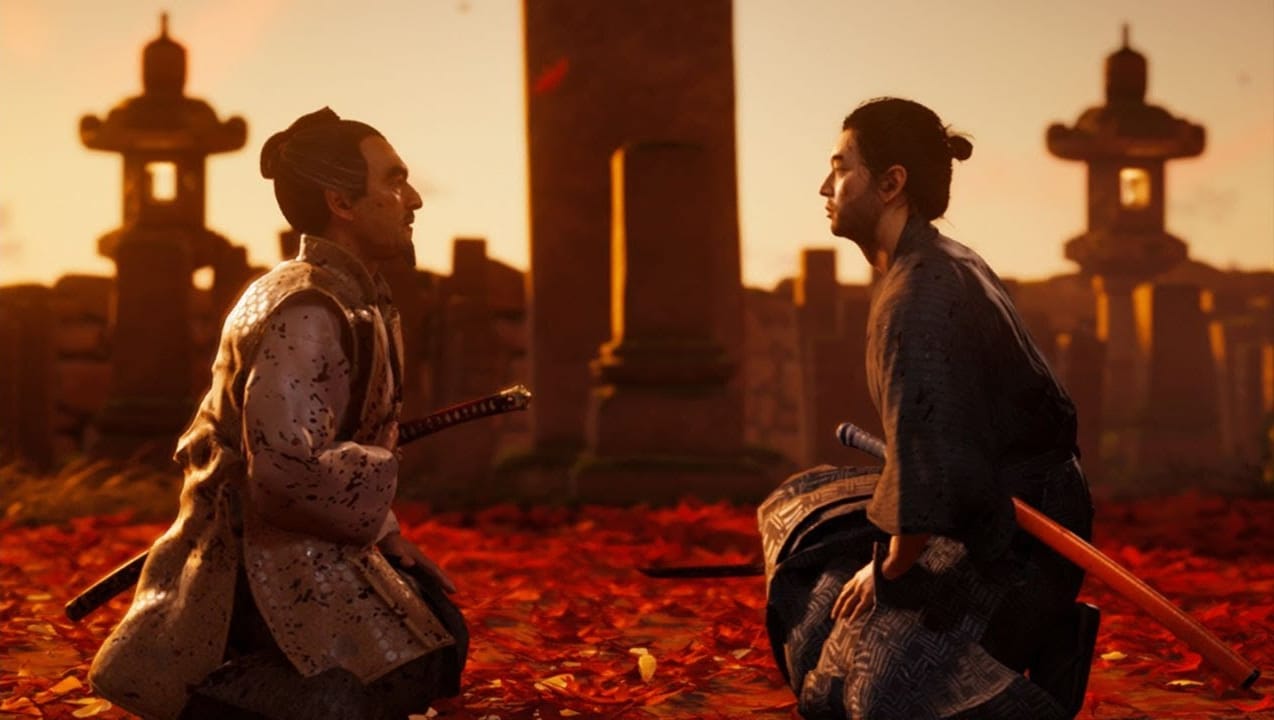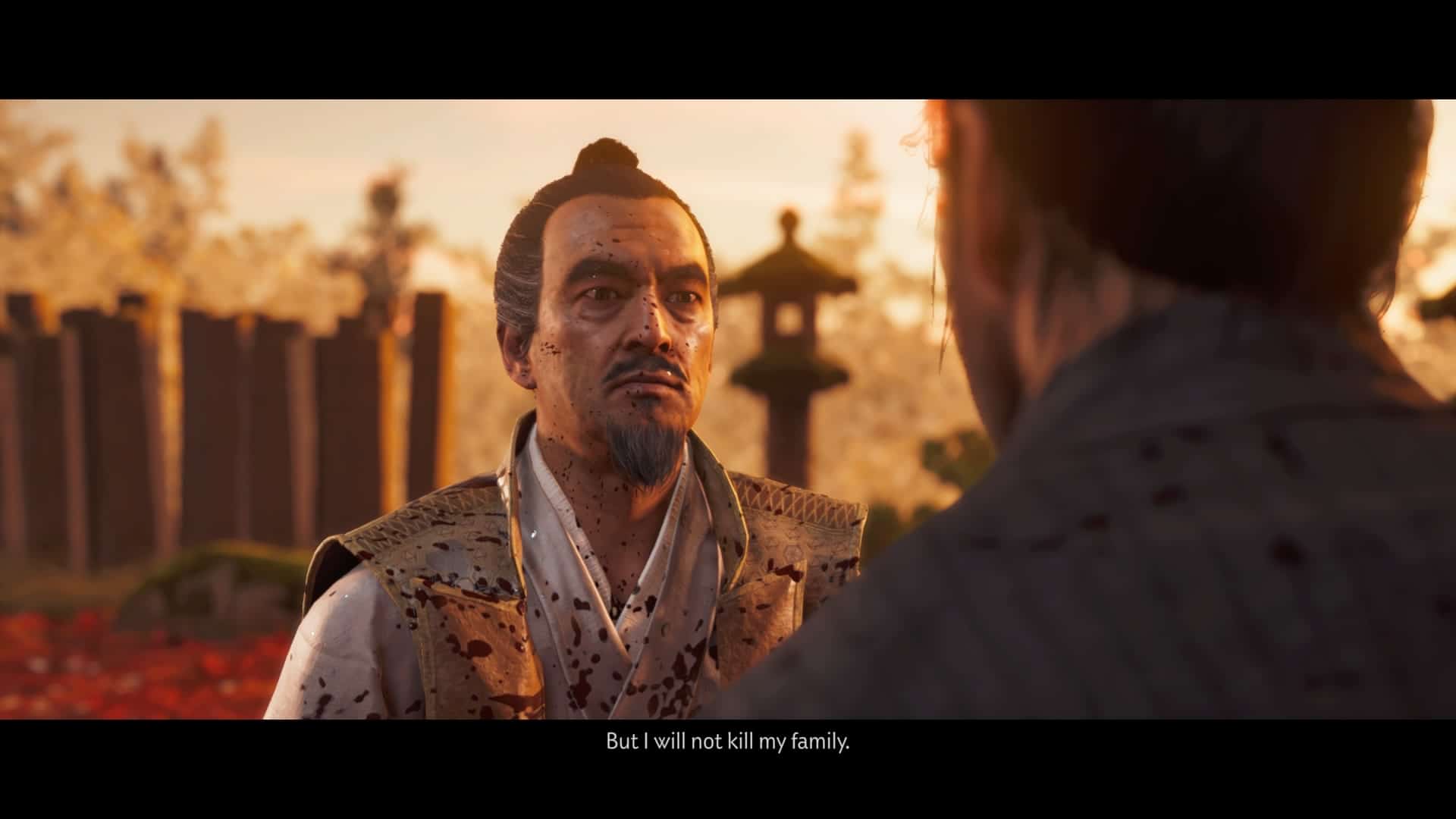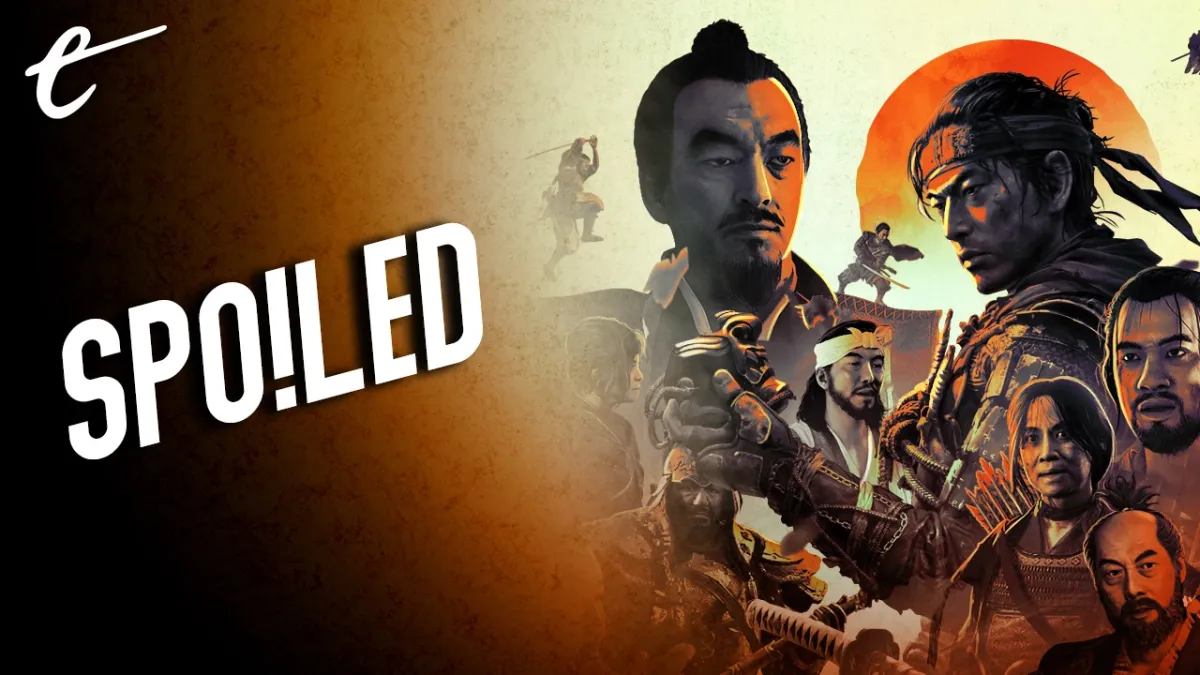To celebrate the release of Ghost of Tsushima Director’s Cut, I’d like to take a look back at the game’s ending and what it did right that other games haven’t. The final choice of Ghost of Tsushima is one that could very easily not have worked. It was a final choice in a game where choice wasn’t a factor, it hinged on the emotional investment of the player, and it had to ride a fine line to not make one choice better than the other. And yet Ghost of Tsushima managed to pull that ending off just the same, and I think that’s worth applauding.
Spoiling Ghost of Tsushima
The ending of the game sees titular character Jin having to face off against his uncle, Lord Shimura, in a final boss battle. Jin has succeeded in warding off the Mongol invaders, but he did so by violating the samurai code of honor that his family has drilled into his head all his life. It was necessary, but his actions have had unforeseen consequences that put him at ideological odds with his uncle, who adheres to the code and to the rigid Japanese caste system to a fault.
In the final moments of Ghost of Tsushima, the two come to blows in Clan Sakai’s family cemetery, with the player having to give everything they’ve got to win against Jin’s equally skilled uncle. And then once they win, Jin (and the player) are presented with a final choice: Jin can retain his honor and give his uncle an honorable death, which will mean killing his last remaining family member, or fully forsake this honor and allow his uncle to live, knowing they’ll never really be family again.
It’s a really difficult choice, and there’s no good option to go with. Each one has its pros and cons. The game also makes sure that, even if the player isn’t fully invested in the philosophical or ethical implications of either choice, it’ll still hit like a punch to the gut because of how much it means to Jin.

Spoiled for Choice (No, but Really This Time)
I’ve previously been critical of games that throw a choice in at the final moment when it hasn’t been a gameplay mechanic up to that point — more specifically, I was critical of Resident Evil 7 when it tried to do that. There were two reasons for my dislike, though: One, the game did not adequately set up this final choice. And two, the game’s two options were heavily skewed in favor of one choice over the other.
Ghost of Tsushima, meanwhile, has been setting its players up for this final confrontation the whole time. From the very first moments of the game, we see that Lord Shimura’s dogmatic adherence to the samurai code of ethics has hamstrung the defenders of Tsushima, leading to that ill-fated ride to confront Khotun Khan on the beach. And the game also gives us a great reason for seeing things from Jin’s perspective, considering this disastrous approach nearly killed him and he only survived thanks to the efforts of a common thief, Yuna.
On the other hand, the game is quick to point out that Lord Shimura is not objecting to Jin’s methods on philosophical grounds. Jin’s tactics have been adopted not only by the very people he’s trying to defeat, but by the commoners on Tsushima, who could very well find themselves in a bloody battle with Japan’s ruling elite. This is not something Jin intended or probably even foresaw, but Lord Shimura’s not wrong to point out that his actions have consequences.

In another notable contrast to Resident Evil 7, the game also isn’t skewed in favor of one choice over another. When I first realized what was happening in the final boss battle, I was personally a little offended that Lord Shimura was trying so very hard to manipulate Jin — bringing him to the family cemetery, final resting place of the family he will be forsaking if he continues to be the Ghost.
But as the conversation went on, I admit I came around to it. While it’s hard to tell sometimes underneath their determined stoicism, it’s clear that Jin and his uncle care about each other very much and do not want to be on opposite sides. Jin does not want to kill his uncle, and it’s not even clear if Lord Shimura really wants Jin to kill him either. But they both have opposing definitions of what’s “right,” and the player can either go with Lord Shimura’s definition or Jin’s.
Preferably choice in games should not be a single two-option final decision that occurs in the game’s final moments. It’s very easy to get wrong, especially if the player is not emotionally invested in it enough or the options aren’t good ones. But if there is a way to do it right, then Ghost of Tsushima definitely pulled it off with its ending choice.






Published: Aug 22, 2021 11:00 am